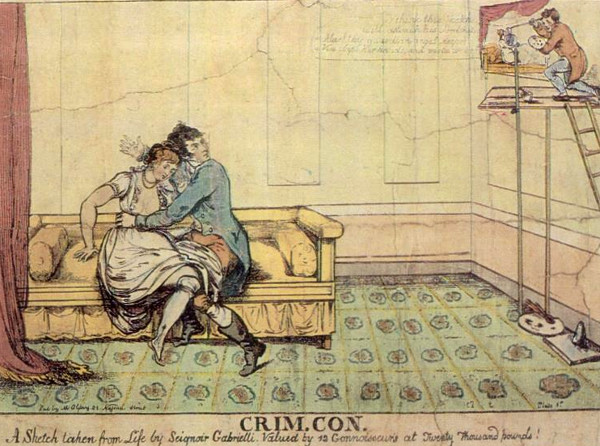Heart Balm on:
[Wikipedia]
[Google]
[Amazon]
 In the
In the
 In the
In the common law
In law, common law (also known as judicial precedent, judge-made law, or case law) is the body of law created by judges and similar quasi-judicial tribunals by virtue of being stated in written opinions."The common law is not a brooding omnipresen ...
tradition, a heartbalm tort or heartbalm action is a civil action that a person may bring to seek monetary compensation for the end or disruption of a romantic or marital relationship. A heartbalm statute is a statute forbidding such actions.
Heartbalm actions in the United States typically include seduction
Seduction has multiple meanings. Platonically, it can mean "to persuade to disobedience or disloyalty", or "to lead astray, usually by persuasion or false promises".
Strategies of seduction include conversation and sexual scripts, paralingual ...
, criminal conversation
At common law, criminal conversation, often abbreviated as ''crim. con.'', is a tort arising from adultery. "Conversation" is an old euphemism for sexual intercourse that is obsolete except as part of this term.
It is similar to breach of p ...
, alienation of affection
Alienation of affections is a common law tort, abolished in many jurisdictions. Where it still exists, an action is brought by a spouse against a third party alleged to be responsible for damaging the marriage, most often resulting in divorce. The ...
, and breach of promise to marry. Of these, criminal conversation and alienation of affection are marital torts, originally restricted to husbands but in many states later made available to spouses regardless of gender. Seduction and breach of promise are nonmarital torts.
In England and other common law jurisdictions, additional heartbalm actions were traditionally recognized, such as enticement
''Enticement'' is a 1925 American silent drama film directed by George Archainbaud and starring Mary Astor, Clive Brook, and Ian Keith.
Plot
As described in a review in a film magazine, Leonore Bewlay (Astor), recently grown into womanhood, wh ...
and wrongful harbouring (tortious refusal to allow a husband to visit a wife who has left him). A claim for damages based on loss of consortium
Loss of consortium is a term used in the law of torts that refers to the deprivation of the benefits of a family relationship due to injuries caused by a tortfeasor. In this context, the word ''consortium'' means "(the right of) association and fe ...
is also sometimes considered a heartbalm action in England and elsewhere.
In the United States, heartbalm actions were widespread until high-profile stories in the early 20th century about heartbalm claims being abused for blackmail
Blackmail is an act of coercion using the threat of revealing or publicizing either substantially true or false information about a person or people unless certain demands are met. It is often damaging information, and it may be revealed to fa ...
and extortion
Extortion is the practice of obtaining benefit through coercion. In most jurisdictions it is likely to constitute a criminal offence; the bulk of this article deals with such cases. Robbery is the simplest and most common form of extortion, ...
led to calls for repeal. The first state to abolish all heartbalm actions was Indiana, with “An Act to promote public morals” in 1935. By 1952, 16 more states had followed its example. Many states that abolished other heartbalm torts retained the tort of seduction, however; of the ten states that had abolished heartbalm actions by 1938, four allowed minors to sue for seduction and three more kept the tort of seduction intact.
Following a report by the Law Reform Committee
The Law Reform Committee was a committee in England and Wales appointed by the Lord Chancellor "to consider, having regard especially to judicial decisions, what changes are desirable in such legal doctrines as the Lord Chancellor may from time to ...
in 1963, England abolished all of the remaining traditional heartbalm torts (excluding loss of consortium
Loss of consortium is a term used in the law of torts that refers to the deprivation of the benefits of a family relationship due to injuries caused by a tortfeasor. In this context, the word ''consortium'' means "(the right of) association and fe ...
) by statute in 1970.
In the United States, as of 2016, seven states still allow heartbalm actions: Hawaii, Mississippi, Missouri, New Mexico, North Carolina, South Dakota, and Utah. However, such actions are uncommon even where they are still allowed.
Works cited
* *See also
* Heart balm (German law)References
Family law Tort law {{law-stub